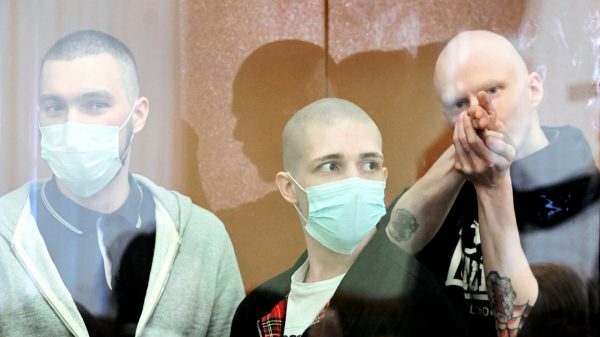Covid-19 infections in the UK are reducing but remain stubbornly high, despite a month of lockdown measures. So could we be doing more as individuals to curb transmission of the virus? A virologist, a psychologist and a public health expert share their views on some of the Covid-19 mistakes that we are all still making.
Focusing on what’s allowed, rather than what’s safe
Even though we’re in lockdown, there’s more scope for social contact than the first time around: for example, in England you can meet a friend for exercise; have cleaners, childminders, or tradespeople in your home, and form various types of bubbles with other households. Such allowances are important for mental health and the economy, but that doesn’t mean they’re entirely safe.
A common problem is not connecting the dots between the people you see in one context, and those you see in another. “For instance, young people often feel they can mix freely with their peers, because they know their peers are not at high risk. Then they’ll go and see their grandparents, and be more careful with them – but not as careful as they need to be, given that they’ve been mixing freely with their peers, who’ve been mixing freely with everybody,” said Lucy Yardley, professor of health psychology at the University of Bristol and a member of the Sage subcommittee advising on behaviour.
Even if they avoid their grandparents, but mix freely with their parents, their parents might then go and see the grandparents. “People don’t sufficiently understand how this sort of free mixing in one situation passes on,” Yardley said. It’s not just young people: “I’ve seen interviews with parents who are being really careful in many respects, but then allow their children to mix freely with friends for their mental health, and then also their children to bubble with their grandparents, for the mental health of both the children and the grandparents. I’m sure the parents aren’t wanting to infect the grandparents, but that’s the best way to do it.”
Trusting friends who say ‘I’ve been careful’
Beware the friend or tradesperson who reassures you that they’ve respected all the rules, and that the cough they just did was a one-off. “A lot of people don’t disclose their breaches of social distancing or even their symptoms to other people,” said Yardley. One study of 551 American adults found that a quarter of them had lied about their social or physical distancing practices, and among those who had contracted Covid-19, 34% reported having denied having symptoms when asked by others.
Failing to appreciate what ‘airborne’ really means
If you can smell someone’s garlic or alcohol breath, or cigarette smoke, you’re inhaling air carrying not just the smell of the garlic, alcohol or smoke, but any virus that’s leaving their nose or mouth if they’re infected, said Julian Tang, a clinical virologist and honorary associate professor in the respiratory sciences department at the University of Leicester. “How much virus depends on different people and their different immune responses. But if you stand there for long enough, you’ll inhale enough to possibly infect you.”
And just as you’ll eventually detect the smell of cigarette smoke if someone lights up on the opposite site of the office, airborne viruses gradually accumulate in stuffy indoor conditions, which is why ventilation is so important.
Ventilation doesn’t just mean opening a window. “The clue is in the name, vent, or wind,” said Gabriel Scally, a visiting professor of public health at the University of Bristol and a member of Independent Sage. “You do need a draft going through. People should be conscious of ventilation in the workplace, shops, or any enclosed space – including at home, which is where most transmission takes place.”
Believing precautions have to be ‘all or nothing’
Increasingly, it seems that the amount of virus you breathe in can make a difference to the severity of your illness, should an infection take root. This means that even imperfect adherence to preventive measures is likely to be better than nothing. “Every little bit that you can do, can and will help,” said Yardley, who has developed a website called Germ Defence, which gives practical tips on reducing transmission.
Some experts talk about the “Swiss cheese model” of pandemic defence: imagine a block of Swiss cheese cut into slices. Each layer has holes which the virus could pass through, but when several layers combine – mask wearing, physical distancing, hand washing, fewer social contacts – this is significantly reduced.
Assuming anything outdoors is safe
Chatting to people outdoors carries a fraction of the risk of any indoor interaction, but it is not entirely risk-free. If you’re stood next to someone for long periods outdoors, eg while queuing for a bus – particularly if you’re stood next to a wall or under a shelter – then gradually any virus they’re exhaling could accumulate in your lungs. “If the bus is delayed by half an hour, which it often is, you might be inhaling more than you realise, and the virus doesn’t smell of anything, so you don’t know,” said Tang.
So, take care on busy shopping streets, but remember that the duration and distance of contact is important. “People are still worried about passing a jogger in the park, or point to the ‘irresponsible’ behaviour of a group of teenagers standing on a street corner,” said Linda Bauld, a professor of public health at the University of Edinburgh. “While neither of these scenarios are risk free, I think there is too much attention paid to them, when what we should really be focusing on is indoor interactions of any type, particularly where ventilation is poor and face coverings are not worn.”
Inadequate face-covering
The mantra ‘hands, face, space,’ is really the wrong way around. All are important for preventing virus transmission, but physical distancing – including preventing small and large-scale gatherings – has the greatest impact, said Tang: “Masking is kind of in the middle. But, if the mask is used as a backup for when you can’t physically distance, or in poorly ventilated areas, it can help a lot.”
The current UK government advice is to pick a face covering that covers both your nose and mouth. Ideally, it should include at least two layers of fabric – although a scarf, bandana or religious garment is acceptable. The World Health Organization recommends three layers for fabric masks.
That advice could change in the face of more transmissible variants, said Scally. “I think there will be very strong voices saying that the three layer face coverings that we’ve got used to are really not adequate, and we should probably have the FFP2-type ventilator masks.”
These are already mandatory in shops and on public transport in Austria and Bavaria. In France and the rest of Germany, surgical masks are required. The main problem with fabric masks is that their quality varies a lot. Some three-layered masks are as good at blocking particles as surgical masks, but flimsy single-layers of fabric block far less.
Believing being vaccinated means you can relax
Britain’s vaccination programme is proceeding quickly, but even so, almost 90% of the population hasn’t received a single dose, and it will be many months before they do. Once you do receive a jab, it will still take several weeks for an immune response to develop, and even then, there’s uncertainty about how much protection people will have until they’ve received a second dose and this has had time to take effect. It’s also still unclear the degree to which being vaccinated prevents you from transmitting the virus to other people.
Surveys suggest that some Brits who have received a first dose are preparing to meet with family and friends, which could result in another spike in cases. Vaccines should eventually return us to normality, but we’re not out of the woods yet.
Thinking you won’t get Covid twice
Reinfections among people who were hospitalised with Covid-19 appear to be rare, but they do happen. Less is known about whether you can be reinfected if you experienced a milder infection the first time around, because most of these people were not tested during the pandemic’s early days. Also unclear is whether people who have previously been infected can pick up the virus and transmit it to others, without showing symptoms themselves. So, even if you have tested positive for coronavirus in the past, you should stick to the rules. And if you have never tested positive but “think” you had it in the spring, you should be particularly cautious because other viruses can cause similar symptoms.

























































Свежие комментарии